|
Staff
Reviews 148
Soundoffs 97
News Articles 6
Band Edits + Tags 76
Album Edits 98
Album Ratings 728
Objectivity 73%
Last Active 01-10-23 3:58 pm
Joined 05-13-09
Review Comments 27,394
| rec robsona rippers (blind spots)
if this genuinely constitutes an oversaturation of the rec-soliciting market I get it. But if you rec me stuff you think constitutes a major blind spot for my taste matrix then I will genuinely try to listen to 31 of these bad boys (stretch due date June 15) and actually I was thinking about writing some small thing for each | | 1 | 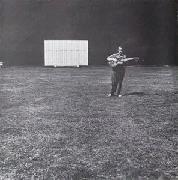 | Fred Frith
Guitar Solos
parksungjoon
I know Fred Frith as the highly synthetic guitarist and composer of Henry Cow, a band that formed at Cambridge University whose generic blend of modern classical, avant-garde jazz, and British rock music was so singular as to apparently spawn an entire genre called “Rock In Opposition,” named after a four-band festival they curated in the late 70s. Frith, as per his interviews as well as his work on UNREST (1974), released a few months before this solo record and a favorite of my early teen years, likes folk, rock, blues, and jazz a lot, and those influences are all on display on UNREST, I think. This baseline of genre eclecticism makes it interesting to try to read into GUITAR SOLOS, which slots more neatly into free improv, a style people often think of, I figure, as the absence of genre entirely. Many listeners out there don’t care about genre per se, but it’s interesting to see Frith branch out here because his genre play is usually so pronounced, even if he’s talented enough to make sure Henry Cow’s stylistic references, and those of his guitar playing in particular, aren’t just references.
This album immediately has that feel of convention being tied to or subsumed into eccentricity in a really engaging manner, the intro track sounding like someone fed “Take Five” through a digital funhouse mirror. The second track, droning along with frightened contemplation, is similarly impressive–”Glass c/w Steel” as a track title gets you part of the way to understanding how he got these supremely unsettling sounds out of a guitar in 1974, but not all the way. “Hello Music,” by the time the third track rolls around, registers a bit as an ironic title: the hints of songhood in the first track’s jaunty time signature have retreated entirely. I would say I’m more impressed than thrilled, but the balance of consonance and unease, mostly erring on the side of the latter, is truly something else.
Already by the fourth track I sense my blind-spot-ish limitations: the fourth track kinda sounds like the third to me, and I’m rarely ever carried over the top by this kind of twinkling atonality. But then he plays with just an individual idea–like the upward bubble of muted guitar picks a third of the way through “Locoweed,” which is what I’d love to call it from now on–and I get hooked again. Maybe there’s some sense in which the kinds of free improv records I’ve experienced are keyed to how cool I find individual ideas moreso than to larger structures. Some of these free improv sessions, especially the records by solo artists, sometimes feel like a successive trotting-out of cool ways to manipulate sound, almost like an avant-garde catwalk. But that might dismiss alternative means of generating structure other than just full-band exertions and conventional songcraft. As soon as I started typing, “What if this record had another guitarist, or drums? Would I feel more structure?” Frith started making his guitar scream alongside those bubbling arpeggios in a very satisfying way, making me doubt myself, so structurally sound did the interjection feel…and then I started thinking about how the big-band sound of Henry Cow also has a bit of catwalk-iness to it–ditto something potentially comparable from America like Frank Zappa’s “Inca Roads”. I wonder what relationship exists between these pieces of music to give me a similar sense of watching a succession of instrumental moves rather than one continuous idea (or at least that the idea exists to bolster the moves)? I know in some sense that all music/organized sound is made up of moments and units bigger than moments–why do I feel like this kind of music resonates more strongly than usual on the level of a succession of impressive moments?
It’s too baldfacedly ironic, but I don’t remember “Not Forgotten” at all, a minute after it finished. But then he starts ripping up the dense and dissonant, almost indie rock-ish chords of “Hollow Music”. I do think I hit a certain genre wall here, which made this album a good choice for potential horizon-expansion–so many prime ideas, and so forward-thinking on the whole, but it’s not quite adding up as an experience. Also didn’t really catch the cleverly titled “Heat c/w Moment,” but then “No Birds” is legitimately worthy of an acclaimed 2000s drone/ambient album, and came out in 1974, and is gorgeous all its own. “Eluvium in the house!” will sound like Procrustean-bed evaluation and reductionism to those who are already seasoned Frithheads, but I think it’s fair game. This song and its daring qualities have elevated the album for me, and I now realize that it’s the long final track I’m listening to. I wonder if ambient got too compartmentalized around the time that people started really attaching themselves to it (the 2000s? Stars of the Lid?). For coming out in 1974, “No Birds” sure shows up Deaf Center and SOTL and their ilk for not sounding more like each other or alternatively like nothing else, for not trying new things. “No Birds” is a near-masterpiece. The ending is brilliant, ending on a note of wacky optimism. Overall, a strange and beautiful and forward-thinking album that deserves all its accolades–but I mostly perked up at the signs of melody, intense mood coloration, and other conventional signs of musical life. Despite the album’s overwhelming strangeness for the time and the forbidding title of its final track, the album’s closing tones did indeed align beautifully with the sounds of birds outside my bedroom window. 3.5 | | 2 | 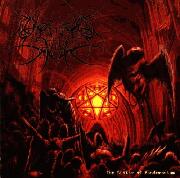 | Crimson Massacre
The Luster of Pandemonium
Hyperion1001
Yeah, it’s definitely going for it in terms of the insanity factor, and it initially sounds unusually like music that’s been sped up ex post facto: the quick drumrolls and cymbal taps have this uncannily “rushed” quality even as the band remains tight as hell, which I think could stand as some kind of twinned goal for metal bands looking to capture aggression and volatility.
Technical DM isn’t my style–as per my discussion with the Frith of the idea of successions-of-moments-vs.-one-big-idea, a sort of reductionist Isaiah Berlin Fox-vs.-Hedgehog conceptual division between two ways music hits me in which I implicitly but not always favor the latter, death metal often feels like the former–I can’t find much to grab onto, unlike a 90s Burzum album or whatever, which is all grab, maybe too much structure, often a bit repetitive where death metal is (basically) not repetitive enough.
I kinda like this album so far, maybe a bit above average for the style, but I just can’t imagine a world in which those rapid taps and rolls would stand as a more convincing or thrilling embodiment of a total lack of experiential anchorage than something like the climax to Converge’s “Fault and Fracture,” which seems to generate more of a holding context for the madness rather than the almost entirely free-floating intensity of a record like this. I’d be really bad at writing about DM: some of the unusual swinging rhythms and roiling riffs are appealing for a moment, but they either lose their shine quickly or are gone even more quickly. “The Devourer,” for its relative groove, fares a bit better (once in a while I have the temptation to apply the concept of “groove” to realms of music that don’t usually invite analysis along these lines: the helter-skelter fling of the aforementioned “Fault and Fracture,” or the bounce of the first song on DEAD AS DREAMS). I also like the guitar line and rhythm about midway through “Epoch”--successful moments like these really do make me wonder what these Houstonites and the “Deathgasm” label on which this album was released would have to do to make me really get into a record playing out at this pace, with this kind of density.
At first the solo guitar arpeggios of “The Hyperborean’s Epitaph” made me desirous for the DM spasms I was just now hating on, but the progressions got more interesting as the song kept going. But now the acoustic section gone on too long, and I’m checking my watch a bit. I don’t like albums that make me feel like I’m being overly choosy, and this one is making me feel that way. Oh hell nah not 10 minutes of this…the transition into the noir-ish lo-fi-ish ending is nice, I suppose, but I don’t see the point in having expanded the composition so greatly to get there. Cool ending–probably the closest this record will get to sounding like Fred Frith…
And then suddenly we’re back, and I’m not sure if I appreciate or am bothered by the suddenness of the transition–call it a wash between the virtues of confusion and those of structural signposting. The insane snare roll halfway through “Redemption” is cool, but again–all these moments feel so detached from my experience of the album as a whole that they can’t be more than merely cool. I REALLY start checking my watch when the title track comes in with yet another one of those snarling DM riffs, although I’ll admit it improved once I pushed my earbuds in. I dunno, though: I shuttle uncomfortably between active and passive listening with this stuff, even at its most unrelenting in pace and intensity, and that’s an issue for me. In short, I’m looking forward to finishing this album; the three-minute “Sacrifice” has been a complete blur to me. Some cool drumming near the end of the final track, but mostly the same brand of experience–no mooring.
A lot happened during this album, but I didn’t feel the force of much of it at all. To an extent, both of these albums I’ve listened to thus far have served to further expose my personal limitations in engaging with certain genres and modes of musicmaking. The long acoustic track was a weird highlight of sorts. 2 | | 3 |  | Egyptrixx
Bible Eyes
pizzamachine
The intro track is interestingly neutral for its intensity: I don’t really know what to call it in terms of genre, which in a weird way is a plus, but I wouldn’t say I’m getting vivid or at least specific imagery from the deep piano chords and cymbal taps, and the song seems too long even at 3 minutes.
Can’t say I’m a fan of the title track, either: feels demo-ish in a way that kind of reminds me of The Rah Band’s terrible first album, which their second greatly improved upon without much tweaking the sonic formula. The insistent sonic “idea,” to put it kindly, of the ascending-descending synth squeal is not my cup of tea, and the backdrop, while relatively fussed-over, isn’t vibrant or unusual enough to compensate for the annoyance. By minute four, this song is really bothering me. Egyptrixx seems like a smart guy in interviews, and smartly extols the virtues of holding experimentation in tandem with an overarching focus on creating a good time, letting the listener hear nice sounds. Woe is me that that balance on these two tracks is rendered into music that somehow sounds both too complacent and eccentric. But then track three has vocals! (My sense is that two of the songs do, both of them featuring the same vocalist.)
There’s something interestingly messy about this track, like the footwork mixup of Chance the Rapper’s “Good Ass Intro” or the Neptunes’ “Trill”/”Borderline”. It’s not nearly as messy as those songs, more accessible and poppy, but the sense of sonic elements combating each other is there. The vocal performance is very flat to me, and I don’t much enjoy the production style or plodding melody. I’m still trying to figure out this guy’s game–the experience he’s after seems mushy to me.
Mushy but bouncy on the fourth track, but this one still has that early-Rah-Band “experimental” mode of generating sound that the second one did, the overwhelming sense that certain sounds were arrived at by fiddling with the knob, whereas music that sounds more confident would maybe moreso sound like someone jumping between discrete points or at least decisions on that knob, or would incorporate other effects and sonic mooring to make it sound less fiddly, etc. I dunno–I’m not a huge “Rollin’ and Scratchin’” guy. This song feels too long, as well.
There are some nice sounds on “Naples,” but I just don’t think either the songwriting (as it were) or the production are strong enough to justify what I see as really big weaknesses in either department, especially “songwriting”--these melodies and chord progressions wouldn’t pass muster as backdrops on funky favorites like ROOTY (2001), because they’re not as catchy or evocative or funny or weird or good. And “Rooks Theme” makes it clear that Egyptrixx likes sounds I don’t–for some reason his high-pitched melodies dogwhistle me where even the first track on SPIRIT THEY’RE GONE, SPIRIT THEY’VE VANISHED (2000) doesn’t quite.
This feels like an instructive opposite to the Fox-Hedgehog thing I was talking about with the death metal and the free improv albums: it’s too sticky and repetitive, not dynamic enough, “all structure”. With “Recital,” I almost get the appeal of the fussy bounce of the beat, but it all feels so TRON…I was gonna call this a highlight, but it’s the seventh track in a row that feels too long, and it’s the longest. This is pretty much a DOA project for me so far, not gonna lie, and I won’t be returning to any of the songs I’ve heard thus far.
“Fuji Cub” is kind of appealingly weird, especially the vocals, but also brings me back in its mood and instrumentation to bad early 2010s electronic blog stuff, which I guess is what this is, but still. (I’ve realized now that the featured vocalist on both of these tracks is “TR/ST” or whatever, who have that memorable album cover for a darkwave-ish synthpop album I haven’t heard. I sense it’s also the kind of stuff I’m talking about, though I’ll withhold judgment.) This feels a bit different from the other tracks, but I’m still getting hit with amateurish qualities I don’t like and synth arpeggio burbles that actively bother me.
This was overall a tough listen, and every track felt like it followed too few ideas, and the ideas were mostly bothersome to me. “Interestingly neutral for its intensity” was something of an omen. Sorry, pizza. 1.5 | | 4 | 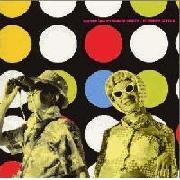 | Flipper's Guitar
Doctor Head's World Tower
JohnnyoftheWell
Starts with a statement of intent: sampling “God Only Knows” is ballsy always. The first track sounds a little more hi-fi than most of the cool miniature indie pop to study/relax to I’ve found when exploring the genre I prefer to spell shibuyakei because it looks cooler. The climax to this first song is impressive–I can definitely dig the drama and lucidity for a dancey, sample-heavy psychedelic pop record from ‘91. The re-entry of “God Only Knows” at first seems to scale another height of ballsy, but then it fits so well that you wonder why certain musical interpolations should seem of necessity out of bounds.
And then the second track’s Sugar Ray (oh yes) good-time vibe hits and I’m sold, though the chorus feels a bit perfunctory in a way that I find often plagues these shibuyakei albums’ pop songwriting. This song is almost there–the element that feels most familiar as a lift to songs like it, the woman’s backing vocals toward the end, feels a bit like a portal into a song that could have–with a more indelible melody, say–presented a mood even stronger than the impressive one presented by the production here.
Impressive sounds to begin the third track. I remember the Sputnikmusic user Idnuf I think once wondered aloud if a lead actor in a movie being attractive could make a movie better in-our-heart-of-hearts-if-we-were-being-honest (maybe through the virtue of increasing audience identification with people in the movie world who are supposed to be attracted to them?), and I’ll leave it at that, but I do like the lady’s breathy vocals even if the track’s sampling feels a bit messy. This song is maybe more interesting than the second one but goes down a bit tougher withal.
Japanese pop is another good blind-spot recommendation for me. My older sister and little brother were really into anime growing up–like, really into it–and all I can hear sometimes are those minor third-to-minor second progressions that heavily populate those opening themes, as well as a good amount of K-pop. Would it be dumb to refer again to the Rah Band but this time analogize them to European Impressionists who copped a lot of shit from Japanese ukiyo-e art but kinda made it their own or whatever? This song is starting to lose me a bit, even though I can tell it is expert. The album is very impressive. The mechanical noise that cuts in toward the end of this third track kind of reminds me of the animal growl on The Congos’ “Children Crying,” one of my favorite production tricks of all time.
This fourth track feels like a good release, but I’m already hoping for more dynamic chords than are hinted at in the intro–and the third track felt like a release at its start, anyhow. Neither verse nor chorus really grab me here. The song gains dynamism as it goes on, but it still has that weird boring distinctly post-Beatles pop songwriting feel that I associate with [muffled screams]. I appreciate the brightness of the percussion and especially that cool percussion, but it’s not enough. Shibuyakei is kind of like this for me, although I really quite like that 2002 A.M. album by Akira Mizumoto that an IRL friend recommended me–under 10 ratings on RYM; check it out. This fifth song is passing by me entirely. I get the vibe, the weird urban jog graffiti metro aesthetic, but I’m not finding much to appreciate other than the stuff that in theory links all these albums together, which only sort of works for me (I’m left to conclude) as aesthetic groundwork.
The sixth track is different enough to challenge that things are so easily categorizable in shibuyakei, though it isn’t distinctive enough on the level of songwriting for me to care much. (Though there’s some snarling quality in the vocals that feels pretty timely, like Kim Deal or what have you.)
What is the point at which a song signals me enough to its seeming prioritization of songwriting virtues for me to start judging it on those terms? I’m not sure I’d want to ask of the SINCE I LEFT YOU Avalanches that they write songs, but this seems far enough across the threshold for me to be disappointed that none of these seem like keepers so far, including the skippy seventh track. Nah, not feeling this. I also don’t like the man singer. The “Sympathy for the Devil” background “woo woo!”s also aren’t appreciated. I dislike “The Quizmaster”--it’s souring me on the album’s approach.
The eighth track is also doing nothing for me–am I in a bad mood? I recognize the forward-thinking moodmaking of this album but can’t get into any of the songs. The final track doesn’t much improve things, but it’s not bad–has some kind of Bizarro momentum, and doesn't feel draggy despite its length. The album has a cool, vibrant aesthetic and I'd be very willing to try it again. 3 | | 5 |  | Blonde Redhead
23
ArsMoriendi
There’s immediately something off about the drums and guitars in the first and title track for me–it’s a song I remember, and it always had a bit of a queasily uncanny quality. Apparently this band started as a more of a noise-rock almost post-hardcore tinged thing, but they seem so purely airy here, as if they must have changed their approach to melody. The second song I like, and remember as well; here, I can hear the post-hardcore influence working. Shit sounds like Unwound or whatever. Good chords, and the vocals are definitely a notch more interesting than your usual dream pop breaths.
Nonetheless, Blonde Redhead are definitely after that immaculate swirl. There’s something a bit more jammy about them, like Deerhunter when they start peeling off contrapuntal guitar lines on “Nothing Ever Happened” or “Desire Lines”. Track three, which seems creepier and more keys-heavy, might modify this sense I have of an eternal mesh. So too may the rest: I only see two other tracks that strike me as possibilities for things I may have listened to. The drums on this album are groovy but also remind me of late-’90s/2000s radio pop in a weird way.
I like the fourth track, but God, now I’m thinking 2010s pop! This is a good album. The melodies don’t pop that much, but I like the textural curlicues and the rock-solid grooves, even if the latter are a bit old-school. The fifth track is solidifying my sense that this album sounds like if a shitty band was really good. I know that’s an unfair backhanded compliment to offload onto a well-respected band like this, but some vestigial obnoxiousness approaches but doesn’t accost their music. But I swear to God this isn’t that far from some of those bands y’all think are like REALLY bad, some of them pretty recent. Not gonna name names. I’m on the fifth track of this album.
The sixth song reminds me of that Melody’s Echo Chamber album Jared likes a lot. The seventh song reminds me somehow of “Happiness is a Warm Gun”. This is a really good album and I’ll be listening to it again–no complaints. The various mood touches in the production and the generally “minor-key” songwriting are interesting–I don’t think it sounds that much like other albums on the whole even as I pick up weird, unexpectedly poppy potential influences everywhere. I feel like I have less than usual to say about this album–it’s going down so smooth, as is this eighth track. In fact, “Heroine” is a favorite.
Oh yeah, “Top Ranking” I know, and while it’s nice, it does feel a bit like a rehash of earlier tracks. The opening of the final track has that same feel too, with the same descending progression with some tasteful minor chords thrown in. It’s a beautiful album, somehow subtle and exciting at the same time–the weaker songs make me doubt the album as a whole because they’re so similar but feel so much more perfunctory. There are times where I wish the album was less thoroughgoingly accessible. But the batting average is quite high. 4 | | 6 | 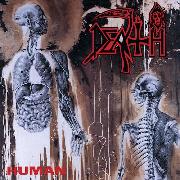 | Death
Human
AsleepInTheBack
Death’s swan song, THE SOUND OF PERSEVERANCE, is one of the few canonical death metal releases to really stand out to me–somehow the dynamics feel much more graspable than usual for the genre on that album. I never got into Death’s other stuff, but always figured them a cut above when it comes to lathering divergent ideas for pace and coloration onto their riff-fests. “Flattening of Emotions” is expert, and the guitar solo is nicely modulated and doesn’t at all sound phoned-in, but I’m not sure in the end that the chugs add up to much for me. Definitely more interesting than the average shredder due to the level of care Death put into the arrangement of the sonic parts. Unlike that Crimson Massacre record, the material on HUMAN never feels constitutionally messy or out of control, even if the striking, snarling climactic inquiry “WHAT WENT WRONG WITH THEIR PICTURE PERFECT LIFE???” forms the song’s emotional backbone. Once in a while Chuck Schuldiner’s voice will detach from the insistent guitar and bass rhythms and those moments are very energizing. I sense a lot of musical strengths flying at me on this album, and I have way more motivation to try to discard my genre-based misgivings and figure out why this is a masterpiece than I did with Crimson Massacre.
I love the skippy cymbal taps on “Together as One,” and am starting to really appreciate the band’s “musicianship,” their togetherness as a unit and the miniature innovations they orchestrate on a moment-to-moment basis as individuals.
Once my friend said that death metal is the metal they play in movies when someone is listening to metal. Death metal definitely has that weird antisocial quality that for me is hard to relate, as it is with black metal, to greater aesthetic trends, Romantic philosophy, whatever Ravenna Hunt-Hendrix is talking about these days. Death, graciously, transform the bile into more than just that, though I keep thinking of obfuscatory terms like “musicianship” to explain how they do it. I can see why Schuldiner, born in 1967 on Long Island and dead of brain cancer at the age of 34 in December 2001, is a hero to death metal fans the world over–his instincts as to when to deploy madness and when structure, on all levels, are so on-point. But I’d say the album falls pretty squarely on the side of structure even as it draws from a welter of crazed introspection for its aesthetic project. I really am bad at writing about this kind of music, but the level of control evinced by Schuldiner’s riff construction and ecstatic solos and dense chords and overall fluidity with songcraft (as it were) stands out greatly.
The synths on the penultimate track present an interesting change in mood, though the perfect pitch of the rest of the record means a relief from its overarching style elements isn’t really necessary. But then the synth abstractions toward the end are so vivid and odd that I’m really just sold on the guy’s instincts above all–who else would dream up such an interlude? The bizarre triplet outro? Sheesh! The bookends to this album kinda have that unintuitive metal “groove” I mentioned in my Crimson Massacre writeup, and I really appreciate the strength of the rhythms in these moments.
The album is a workhorse, and all of the work works. My blindspotty limitations with death metal prevent me from giving this higher than a 4, and even from not letting you know that that’s a “stretch 4,” a lenient rating if I’m dispensing with any curve whatsoever. Still, though. 4 | | 7 |  | Buddy Guy
Stone Crazy!
Jash
I barely wanted to write during the first song, it was so transfixing. I have a HUGE block with a lot of blues music because it is so limited in its chord-progression means: always 1, 4, 5, which hurts as a fan of pop and soul and R&B music, so infused are they with complexity and counterpoint, unexpected touches on the level of chords-and-melody polymers. I usually skip the Beatles’ blues songs. I skip “Honest Man” on AT DAWN. My favorite Robert Johnson song is “They’re Red Hot,” which is barely blues at all. Other genres of music which also don’t have complex chords and melodies, like ambient techno or Afrobeat or whatever, at least don’t have that tantalizing almost-songhood…
This shit rocks. I’m so high. I can’t believe it. I still have a sense of limitation because of the 1-4-5 thing but what a rollicking start this is to a project in this genre, in this era, by a guy who’s still fucking touring–God bless “I Smell a Rat”. The second song shifts the mood of the album nicely, with more of a lounge-y, rainy vibe, bolstered by Guy’s work on the guitar, which really is superlatively fiery. I suddenly think I have to go to bed after this song, but this album is a pleasure so far–as with HUMAN, I’m not getting the sense that I like the genre so much better; instead, I feel that I’ve found its most seamless entry point.
It is now 2PM instead of 2AM, and I am listening to Buddy Guy on the bus. The guitar is still really piercing and melodic with just a dab of unhinged energy, but I’m not as in love with the backing or composition on this song. It is interesting, and I do mean this as neutrally as possible, how many blues musicians locate their access point to humanity in the wrongs of woman. Whatever Buddy needs—guy’s feeling it.
The fourth track feels like the most traditional thus far, with that old-school (“Chicago”?) galloping beat and a cleaner set of transitions between those 1-4-5 chords. Wish I had a better instrumental reference point for the fifth track than the Allman Brothers’ live rendition of “Stormy Monday,” but I love the drag and melancholy of that song, and this melancholic drag I enjoy quite a bit too. It’s pretty easy for my mind to drift during these songs, and I feel a slight discomfort at finding Guy’s emotional provocations a bit dull—by minute 7, I’m kinda lost. This last song is boring too, even with some wonderfully confusing guitar solos thrown in. The pain in this album is palpable and real, but it lost me with the “Lost Someone” routine twice in a row to close. This structural imposition, plus my difficulty with the reduction in songwriting means, limits the album’s appeal greatly for me. Also maybe I was just really high. Very willing to give this a couple more listens. 3 | | 8 | 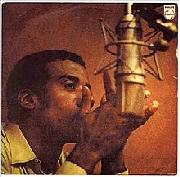 | Jorge Ben
Força Bruta
ReefaJones
The opener is immediately impressive and definitely pretty, though I think it’s missing the streak of weirdness that lines something like the opener to CONSTRUCAO, which I figure might mean less replay value, but who knows–it’s so immaculate, too. The repetitions in his vocal improv about halfway through are very pleasing, and he’s a super expressive singer, which means a bit less of the lost-in-translation feeling of, I dunno, the ballads on CONSTRUCAO…
There’s something more familiar-feeling about the two-chord alternation at the beginning of the second song, which is funny: it’s just two chords; what, are certain chords “especially Brazilian”? This guy is an expert–the octaved-out background vocals add depth and color and solemnity where many would coast by on the breezy vibes. And then the virtual tempo change (a double-time segment of the song) works perfectly, as well, breezy and jittery all at once.
Love this guy’s voice–the third song’s jazzier flow feels like a perfect fit, the little vocal gulps and hiccups (which aren’t all over the place–they really are “little”; this guy seems like a consummate crowdpleaser) provide a perfect counterpoint but not rebuttal to the sophistication of the production. I feel like his songs depend more on two-chord alternations than usual for MPB, which maybe makes this feel especially P–not a bad thing at all.
The fourth song, which I’m finding a bit draggy despite cool vocal touches, seems to embody this simplicity, so I guess it’s possible I was onto something–though I may just gravitate toward the more avant-garde side of MPB. I can’t say this song is doing much for me–kinda “waiting for the drop” and not finding much virtue or interest in the process of waiting. The breakdown near the end is cool, though.
Not a big fan of Song 5–I think I can understand the two-chord alternation structure as a part of MPB rather than the kind of exception I made it sound like above, but I’m not sure Ben wields the structure in the most thrilling way all the time. But I’m loving the three-chord alternation of the first part of the sixth song–go figure. I already like this project a lot–I’m finding interesting indications of the ontology of my taste in music, pop and otherwise. This album feels a bit simple to me, listening to the seventh song. Love the vivid guitar picks and strums at the end of the eighth song.
Yeah, sorry…I liked this album, but the final and title track resonates much the same way. The energy and production on this album is impeccable, but I think the songwriting is a bit rote. 3 | | 9 | 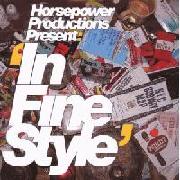 | Horsepower Productions
In Fine Style
granitenotebook
So forward-thinking—the swinging syncopations of “Fist of Fury” sound more like the music we came to know as dubstep than I imagine much of anything else did in 2002. It has that chintzy hit of early 2000s UK step music, but the rhythms and the ominous sonic details make it less purely celebratory or sexual than “Rendez-Vu” (1999) or whatever. Loving the sonic sculpting of the outro to this track too.
The second track has a bit more of that old-fashioned club feel, but the things Horsepower Productions (must Google) are doing with individual drum sounds and their collapsibility against each other really does ratchet this up another notch. I don’t know, as per some earlier reviews, that I’m wholly unsatisfied with the state of affairs that these guys don’t seem to care much about songcraft, giving the tunes a bit of a “waiting-room” feel: it’s a great room to wait in.
The kind of in-letter-but-not-in-spirit aping of dub techniques on the third track is interesting, and I like that I can clearly hear both influences and what Horsepower are bringing to the table. I wouldn’t say any of this music has thrilled me personally, but I’m very impressed. The oddball chord about two and a half minutes in is the kind of house touch I always love—but their deployment of just that one chord is another example of their synthetic abilities to defamiliarize well-worn sounds and effects. Remind me to look up the 1998 Sunship album I just found in the 2-step charts; it looks interesting…
Oh yes, the “exotic” touches in the scale and sound of the hook on the fourth track—like it quite a bit (also feels very early-2000s UK). And those warm, popping chords halfway through!: this seems to be what I like best about Horsepower. The house-inflected dissonance of track six is interesting. I’m still trying to figure out what I’m getting from this album and how much.
Loved, immediately, the Strictly Rhythm-ish entry of the seventh track. The horn blasts are interesting, and seem to expose Horsepower’s additive style, often deploying sounds little and big that disrupt or modify the easy mood of the sonic background to which we were first introduced. It’s a cool song, though I don’t know if adds up to all that much for me.
The album has a nice flow at this point, but I’m finding it’s not really my (wait for it) style. I feel like I want it to be more poppy or less. It’s very forward-thinking but I wish it hit me harder, or that more interesting structures replaced the kind of melodies I’m naturally magnetized to. It reminds me, in fact, of that first Basement Jaxx album, especially when the highly melodic “Rendez-Vu” sets the scene. (ROOTY is much better.) I think this especially with songs like “To the Beat Y’all,” with its lightly meta/reflexive sample. The wild percussion of the penultimate track steps up the vividness. This album was impressive and pretty fun, but it felt slightly limited to me, in the way immensely prophetic records sometimes can. 3 | | 10 | 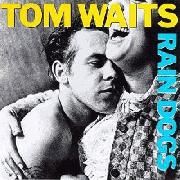 | Tom Waits
Rain Dogs
widowslaughter
The wacky junkyard percussion and Waits’ telltale growl, as deployed on RAIN DOGS opener “Singapore,” is as a sonic combo so tightly loose and well-rendered and acclaimed and well-known that it’s kind of hard to find things to say about it, except at the margins, in the corners—such as that honestly brilliant, therapeutic rain-sound ending. And then “Clap Hands,” a song I know well, comes into play—same idea behind the percussion and vox—and this guy seems like the same wacky genius everyone talks about. The morbid creepy-crawl is not exactly my pace, but that’s okay: the blues structure here is transformed into a deeper, poppier, songier morif, and I really enjoy Waits’ efforts to bridge the gap, even if he probably just thinks he’s telling a creepy morbid story.
“Cemetery Polka” just came on. Man—is the whole album like this? It’s kind of awesome. The album is evidently a one-trick pony of sorts, all barroom, but Waits’ incorporation of old-timey timbres and melodic tropes is given life by his songwriting, which always feels a notch more interesting than it needs to be, never ever pure formula.
I feel like even though Tom Waits’ music is so forceful and flamboyantly masculine, a lot of the important stuff he does is hard to detect. “Big Black Mariah” goes hard, but I should be tired of this album already. The Knicks are on in half an hour and I’m not even worried—I want to finish RAIN DOGS and see where Waits can take this sound. Loving the experience so far. Woah, “Hang Down Your Head”—gorgeous guitar, a really bright ascending progression, and all told a nearly perfectly timed switchup on the sonic formula (I’m not sure I would have kept “Diamonds and Gold”).
Now he seems to have shifted gears, although I always get the same sense from Waits’ songwriting, one of a songwriting genius putting his nose deep in a Great American Songbook and inflecting the results with his idiosyncrasies—not always the obvious ones—so that they remain unaccosted by obvious genre signals. Not a fan of “9th & Hennepin”—it puts Waits’ personality too purely on display. Nor would I call “Gun Street Girl” a thriller. Even “Union Square” feels a bit more like unadulterated blues than I can usually handle.
But he’s back on top with the mosey of “Blind Love”. Such good guitar on “Walking Spanish,” like a dream of a later R&B record. “Downtown Train” I know well—classic, with a crazy chorus. Perfect closer. The album is a beast, a great expression of Waits’ personality, with no sense at all that he’s left anything of himself behind. 4.5 | | 11 |  | Sam Gellaitry
VF VOL II
Conmaniac
Great host of effects and energy in the first few seconds of the album—the treated horns are thrilling as far as Zoomer pop abstractions go. Once he starts singing it feels pretty familiar (and very Con-y indeed), and his voice is not the kind I like, too whiny and aspirational. But the guy definitely knows how to generate restless, noisy slices of futuristic R&B.
“ANGEL” Con has played before, and it feels like my only issue is “sensibility”: the nerdy coolguy image projected by many a croony, plasticky recent hip-hop/R&B product just feels kinda icky to me, aesthetically speaking, in the way I’m sure Pop Art felt to a lot of people who were down with the stylistic developments in modern art up until that point. “Euphoria” makes it clearer that I don’t like his voice, though his production, while it could maybe use 5% more oomph, is strong everywhere, bouncy and with a lot of different things going on. “Solarium” is a very strong instrumental, with wonderfully treated guitars worthy of Fred Frith.
I think with “Name to a Face” I’m warming to the fact that this is pretty close to the music I want to make, though perhaps that makes more frustrating the difference I can detect in our decisionmaking process as well as ideas about how we want to come off. He has nice chords, as on the house-y “Picture in My Mind”—sometimes I wish he did different things with them, but this song, which might be the strongest yet, proves his songwriting bona fides on an atomic level are enough to get by.
By the big song “Serotonin,” his approach is starting to grate, and “Stuck” makes no useful interventions on the formula either, except maybe the double-time drums I wish he had applied to “Name to a Face”. I can’t say I liked the album much as an experience: it felt like less than the sum of its parts. 2.5 | | 12 | 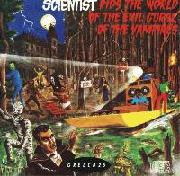 | Scientist (JAM)
Rids the World of the Curse of the Vampires
ffs
The first song feels surprisingly more experimental than I’m used to with the 70s dub I tend to listen to (including by Scientist’s mentor King Tubby; I also highly recommend Harry Mudie). I mean “experimental” in the general sense of “trying things out,” almost in the manner I used to lambast that Egyptrixx album: fiddling with the knobs in real-time and seeing what happens. Dub is inherently kind of this way as a genre, always depending on the play between an existing track, an overriding production aesthetic, and individual decisions made on a local and often improvisatory level as to how to emphasize or repeat or fade a particular sonic idea. A lot of my favorite albums feel pretty tight with the latter element, always wrangling oddball instincts into proper form; in other words, I actually like my dub with fewer fades. That said, the second song’s Michael Prophet vocal dub fares better. (I also just realized that the original cut for the first song is from Wailing Souls’ FIRE HOUSE ROCK, whose title track I love. Oh shit, that’s the source for one of the other songs! Score!)
Track three was bringing it, but then track four really BROUGHT it, with perfect ringing percussion worthy of that 1973 Augustus Pablo album and a simple bassline that carries you softly through the day. Listening to “The Mumny’s Shroud” feels like listening to one of those Dilla beats where he just looped part of a song and laid drums down and decided that if he doesn’t feel like IP is a problem than neither should you, or maybe vice versa. It makes me wonder how I’d receive dub music if I knew all the source material. But I do love “Fire House Rock”.
I dunno; even on “The Corpse Rises” the sudden doubling of the echo and volume on the drums feels a bit too “random,” as if the song could have used a more moderate hand. The album makes me unusually sleepy, a quality I don’t particularly associate with quality or a lack thereof. The intensely melodic quality of the final track draws some interest, but I can’t say I loved the album: its level of activity made it feel amateurish compared to its predecessors. 3 | | 13 | 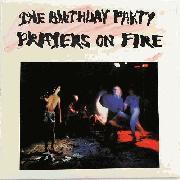 | The Birthday Party
Prayers on Fire
porcupinetheater
The business and harrumph of the first song is familiar as the kind of music I told myself I’d hate forever as a teenager: the goof of Zappa, the low end of Blank Dogs or whatever 2011 post-punk I was hating on at that time. The music feels limited, but when the instrumental backdrop lightens and their vocals take over, they do some pretty interesting stuff. It definitely feels during its sparser sections like some Brooklyn stuff I’d go to see live these days, which I suppose is a plus.
The second song also feels familiar in that regard. I can’t fault a record for sounding like the stuff that ripped it off–but I wouldn’t say I’m in love with this song either. The little details are impressive (such as the alternating one-two guitar interjections during the verses), but the songwriting just feels like your average post-punk tune, all angular dominant-sevenths and small modulations in the bassline. The third song is interesting–the vocals are completely ridiculous in a way even Ween wouldn’t gun for, and the backdrop inquisitive and reverberant. It’s definitely got a prophetic slacker touch, but it’s not like I took to Ween quickly, either…
The fourth song is even better than the third at first, the second it comes in. Again, there’s something unappealing about how The Birthday Party carry across their ideas, thus far always with the same grimy slump, no counterpoint provided by the varying levels of weirdness in the vocals of who I just wow realized is Nick Cave. Well, I can’t say I like the album so far. I’ll try to keep my general distaste for Nick Cave out of the way, though. But the fifth song is more brooding and needling, and I’m starting to look at my watch. I guess the driving swing of the sixth song is cool–it’s just not the kind of cool thing that appeals to me much. Yeah, the seventh track has me feeling whatever, and its ping-ponging slinky bass doesn’t elicit much, though Cave’s unusually unhinged random vocal climax kinda did. But, really, it feels too long and I don’t enjoy the musical motifs with which he’s working, although the album is kind of impressive too.
His improvisations at the beginning of the eighth track are pretty great, though I immediately don’t enjoy the childish-sounding sax-keys polyrhythm laid atop them. Some of the breakdowns on this album are definitely impressively messy. I haven’t really had a reaction good or bad to this album in a long while–it does not feel as if I’ve been spoken to directly. The final track features some more dissonance and growling. I didn’t like the album–the songwriting wasn’t striking enough to cover for the fact that it’s in a style I don’t enjoy. But it wasn’t terrible anywhere–less of a difficult listen than one might anticipate given its barriers to my entry. 2.5 | | 14 |  | Sheila Chandra
Weaving My Ancestor's Voices
protokute
Oh my god, what is THIS? The first track is awesome, complete balance and intensity apparent in Chandra’s a cappella bursts of rhythmic nonsense. It’s so cool that I’m laughing. The second song is a cappella, and is beautiful but feels a bit more familiar and folk-y, and less arresting therefore for me. That was seriously one of the coolest opening tracks I’ve ever heard, though. Apparently this was the first of three albums released by Chandra on a world music label run by Peter Gabriel. The random key-switch soft interjection about two and a half minutes into this second track was really cool.
The third is more familiar in the tradition of Indian classical music, with a drone played by a tambura and singing along the lines of what I assume to be one of the seven svaras, established by the heptatonic scales, or thaat, which they use to establish improvisational structures. It’s not interesting me much, and I’m a bit disappointed in the album thus far after such a rollicking intro. I got distracted and the fourth rolled right past as well.
I wish I liked music like this more: there’s clearly a whole multigenerational, multicultural host of musics that depend on a suspended drone and repeated modulations of a vocal hook that resonates differently depending on emphasis and lyric. With Chandra, I’m made to wish she were headed more in the direction of art pop, and I can’t shake the feeling that what she does is more to my taste when incorporated into the structure of an introductory or closing or interceding phrase to a more complex pop composition.
The dry production of “The Call” brings a nice twist to the vocal twirling, with a touch of Laurel Halo-style defamiliarization presiding over the proceedings. “Bhajan” makes it clear that despite the simple sonic backdrop required by the tradition Chandra wants to try something new every time: so, a sharper, more metallic and wavery drone to anchor things this time. At some point I hit a genre barrier, which makes this a good rec: I just don’t see how the songs can accumulate power in the way I want songs to–and not necessarily on a linear order–with this kind of constant melodic swirl. I just have to imagine there’s music out there which intercedes on the formula more thrillingly. Though “Speaking in Tongues II” is coming up…even this isn’t quite as thrilling as the first iteration, but it’s probably still my favorite material here. Both of the tracks make superlatively clear her vocal talent.
Then, more drone. Her voice seems even slower and less liable to melodic leaps on this song, and she seems to be singing “Hallelujah”. The last track is a simple multitracked chant. The album has one of the coolest opening tracks ever, but its minute-to-minute hit rate for me was very low. An interesting case of innovation meeting tradition halfway, but not a particularly interesting listen. I’ll be relatively generous. 3 | | 15 |  | Holy Sons
The Fact Facer
DocSportello
The first song is more folky and less UK post-punk doom than I expected. The guitars are so cleanly recorded but the notes so low and muddy, a kind of uncanny effect. Jeez, just looked at that album cover. There’s a classic indie-rock strain in the guy’s voice that makes the song feel like a successor to something off THE MOON AND ANTARCTICA. The epic guitar tones are a little more yearning and lightly borne, however, which gives the song a kind of widescreen feeling, an atmospheric burn that looms large. I can’t say the song did much for me, but it was tastefully rendered.
I just found out this band isn’t British, but they do remind me of a band like Everything Everything insofar as their spin on a well-worn genre is so high-definition, practiced, made perfect. I’m not saying Holy Sons are bubblegum pop or whatever, but there is an impressive sheen to their songs that is hard to chalk up to any one individual element. I also wouldn’t say the second song grabbed me.
The twang of Track 3 intrigues me, although it too feels as it has been wrangled without issue into Holy Sons’ hefty aesthetic system. To me, the band has thus far demonstrated a remarkable level of sonic balance, but not much else. The music is drenched wistful guitars, wavering synths, and heavy percussion; the vocals, not too distinct. The fourth song makes me think of old-man music—it sounds like something Leonard Cohen or Iggy Pop would have released in 2010. It’s also really just two chords, and the pinging minor-second dissonances in the acoustic guitars don’t do enough to diversify the melodic portfolio.
The fifth song is more pleasant, although interestingly it retains that ineluctable old-man touch. The little minor-chord transitions at the end of vocal phrases feel a bit canned. The album is a bit confusing to me: none of it is hitting, but he seems nonetheless to be switching out different songwriting virtues, trying out a few things. This song isn’t bad.
The sixth song almost has something going on, but his songwriting isn’t what it needs to be: strong enough, weird enough, beautiful enough. “Life Could Be a Dream” immediately reminds me of something: maybe the Jerry Paper album with Badbadnotgood? This one is nice—again, I can’t escape the sense that very few songs on here were without hope, but that only a couple of them got more than halfway there.
Interesting dubby mood on the eighth song—I like it, though I again don’t think this guy is a strong singer. A lot of interesting stuff going on in these last few tracks. I’m starting to like the album in some sense just as it’s ending. The album is a bit dreary but emotionally genuine. It really picks up with “Life Could Be a Dream,” though don’t miss the title track and closer’s plea to a woman that the narrator might escape the police should he stay with her. 3 | | 16 | 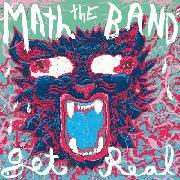 | Math the Band
Get Real
Kompys2000
I like some of the ideas on the first track, like the odd chromaticism on some of the progressions mashed with the chiptune-ish speedy energy, though I can’t say the singing is my style and the production seems a bit muddy, not letting individual sounds ring out.
The energy on these tracks—the sense that they haven’t lost a beat even when switching wildly from idea to idea—is impressive, and gives the album thus far an unusually vivid “roller coaster ride” effect, with tiny impressive songwriting and performance maneuvers being trotted out in front of our dazed roller-coaster eyes. I’m on the 9AM subway home, and it looks like everyone here could use some Math the Band. The third song, its chorus, features Math the Band’s most impressive melodic and rhythmic hook yet. “I Hope You Die,” the fourth track, kind of solidifies my sense that this band has good ideas for how to generate power but aren’t able to render them genuinely thrilling: feels like a certain level of emphasis in the production or structure is missing, making it feel a bit like a mishmash when it should be a freight train.
This is a good “blind spot” recommendation: the pace and group vocals of music like this are elements I’m often turned away from, but I want to know why—nothing wrong with catharsis, after all! The ending of “Guts” is pretty irritating, and I’m not sure whether to chalk that effect up to too much going on, or not enough—it kind of feels like both. The songs are hitting all the same basic notes for me—I don’t sense much counterpoint in the arrangement of the chiptune arpeggios and quick riffs, whereas I do sense that impulse to try something different with even a formulaic and easily assailable modern pop punk band like Origami Angel. GET REAL, by and large, depends on the strength of its melodic outbursts and hooks to survive as a piece of musical patterning, and I’m not sure it’s as strong as it needs to be to hold up in that regard. By the ninth song I’m sort of tuning out, which isn’t a good sign: seven left! Lotta ascending chord progressions on this album, and solos I’m not a fan of. I wonder how much the chiptune-ish synth is bothering me: it doesn’t feel like very much, but they’re everywhere, and I’m not enjoying the album.
This record really doesn’t let up: I wonder if Math the Band want to see life as a series of exciting car chases, or if that analogy is simply my inclination because of the context in which I’m listening to GET REAL: on a slow train home. I guess the point I’m trying to make is that the pace of the album seems almost unreal, though no realism needs to prevail over the mood and flow of any given album, were we to try to define that term—I like plenty of albums that are fast all over. Somehow with GET REAL, however, I’m left yearning for counterpoint, a ballad, a sign of life that isn’t just made up of Signifiers of Life.
This was a rough listen, a real pummel, though counterintuitively I liked how the last song kinda felt like the first fifteen combined. I don’t know if I’d say that Math the Band are simply interested in representing feelings and sensations that I don’t grok at this point in my life…but I do think they should slow down every once in a while. 2.5 | | 17 | 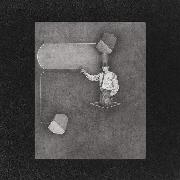 | Alix Perez
Phantonym
climactic | | 18 |  | The Evpatoria Report
Golevka
Sniff | | 19 | 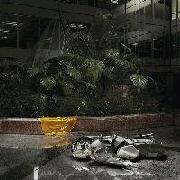 | Jam City
Classical Curves
Ryus | | 20 | 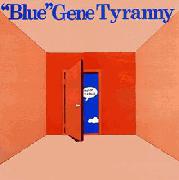 | Blue Gene Tyranny
Out of the Blue
Winesburgohio | | 21 | 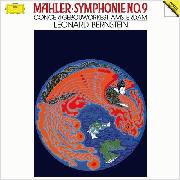 | Gustav Mahler
Symphony No. 9
rabidfish | | 22 |  | Chicago
Chicago Transit Authority
Deez | | 23 |  | Tipper
Broken Soul Jamboree
BitterJalapenoJr | | 24 | 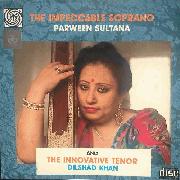 | Parween Sultana
The Impeccable Soprano Parween Sultana
Drifter | | 25 | 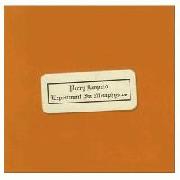 | Perry Leopold
Experiment in Metaphysics
plane | | 26 | 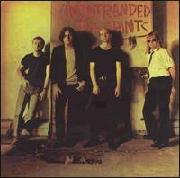 | The Saints
(I'm) Stranded
SlothcoreSam | | 27 | 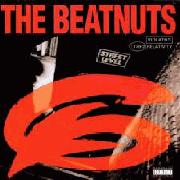 | The Beatnuts
The Beatnuts: Street Level
PotsyTater | | 28 | 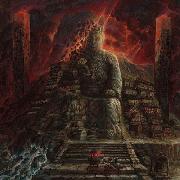 | Ripped to Shreds
劇變 (Jubian)
Atari | | 29 | 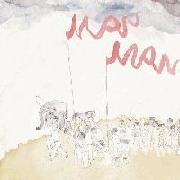 | Man Man
Six Demon Bag
SandwichBubble | | 30 | 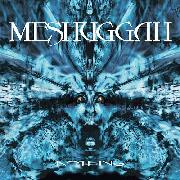 | Meshuggah
Re-Nothing
evilford | | 31 |  | Ilenkus
The Crossing
Koris | |
robertsona
05.01.23 | O Boy | parksungjoon
05.01.23 | manuel gottsching | parksungjoon
05.01.23 | also moondog | robertsona
05.01.23 | Albums pls and one per user, but yah whichever one of those | parksungjoon
05.01.23 | ok
fred frith - guitar solos | Hyperion1001
05.01.23 | crimson massacre - the luster of pandemonium
u generally don’t have a penchant for extreme metal so ill rec you one of the most obtuse, dense, borderline non-music extreme metal albums I know of. good luck 👍 | parksungjoon
05.01.23 | LOL the one that rymmers voted american primitive guitar on? yea thats a good album | AsleepInTheBack
05.01.23 | what would you say constitute your blindspots? | pizzamachine
05.01.23 | Egyptrixx - Bible Eyes | Hyperion1001
05.01.23 | “LOL the one that rymmers voted american primitive guitar on?”.
yes sir that’s the one 😎. it legitimately rips. | JohnnyoftheWell
05.01.23 | ESSENTIAL SHIBUYA KEI
Flipper's Guitar - Doctor's Head World Tower | parksungjoon
05.01.23 | john fahey invented fingerpickin dontcha know m/
but yea thats a proper interesting metal right there | robertsona
05.01.23 | hmm
I hear a lot of Spanish language music where I live and don’t know much about it, tend to think it blends together because of the glancing context and lack of familiarity
Music from around the world is great generally, and stuff in different languages. India is a big blind spot
DM and a lot of heavy music
The harder side of electronic, jungle, dnb, as well as industrial
Could probably use more country and folk, as well as blues | parksungjoon
05.01.23 | check ravi shankar and then review him | robertsona
05.01.23 | fred frith is doing a four day residency in NYC in october maybe I'll go. he old | ArsMoriendi
05.01.23 | I know I’ve played them for you before but Blonde Redhead - 23 feels like an obvious Sona classic
Even if I slightly prefer Misery Is a Butterfly | AsleepInTheBack
05.01.23 | dm/heavy shit ermmmm
if the fact that you haven't rated any albums by Death is because you haven't heard any albums by Death then you should listen to an album by Death and it should be Human
otherwise Behemoth - Demigod
otherwise Death Toll 80k - Harsh Realities (this one needs more rates and is only like 25 mins long no brainer) | Jash
05.01.23 | I got you for the blues, Buddy Guy - Stone Crazy! | ReefaJones
05.01.23 | Pick the one that interests you more:
Jorge Ben - Forca Bruta (Since I just wrote a short review for this brazilian classic)
McCoy Tyner - The Real McCoy (great jazz album by one of the goats) | mynameischan
05.01.23 | Goodfight | robertsona
05.01.23 | hell yes. on the case now | PotsyTater
05.01.23 | 3 has few really really good songs | robertsona
05.01.23 | I can't even figure out how best to do this so here's one:
Fred Frith - Guitar Solos (1974)
I know Fred Frith as the highly synthetic guitarist and composer of Henry Cow, a band that formed at Cambridge University whose generic blend of modern classical, avant-garde jazz, and British rock music was so singular as to apparently spawn an entire genre called “Rock In Opposition,” named after a four-band festival they curated in the late 70s. Frith, as per his interviews as well as his work on UNREST (1974), released a few months before this solo record and a favorite of my early teen years, likes folk, rock, blues, and jazz a lot, and those influences are all on display on UNREST, I think. This baseline of genre eclecticism makes it interesting to try to read into GUITAR SOLOS, which slots more neatly into free improv, a style people often think of, I figure, as the absence of genre entirely. Many listeners out there don’t care about genre per se, but it’s interesting to see Frith branch out here because his genre play is usually so pronounced, even if he’s talented enough to make sure Henry Cow’s stylistic references, and those of his guitar playing in particular, aren’t just references.
This album immediately has that feel of convention being tied to or subsumed into eccentricity in a really engaging manner, the intro track sounding like someone fed “Take Five” through a digital funhouse mirror. The second track, droning along with frightened contemplation, is similarly impressive–”Glass c/w Steel” as a track title gets you part of the way to understanding how he got these supremely unsettling sounds out of a guitar in 1974, but not all the way. “Hello Music,” by the time the third track rolls around, registers a bit as an ironic title: the hints of songhood in the first track’s jaunty time signature have retreated entirely. I would say I’m more impressed than thrilled, but the balance of consonance and unease, mostly erring on the side of the latter, is truly something else. | robertsona
05.01.23 | Already by the fourth track I sense my blind-spot-ish limitations: the fourth track kinda sounds like the third to me, and I’m rarely ever carried over the top by this kind of twinkling atonality. But then he plays with just an individual idea–like the upward bubble of muted guitar picks a third of the way through “Locoweed,” which is what I’d love to call it from now on–and I get hooked again. Maybe there’s some sense in which the kinds of free improv records I’ve experienced are keyed to how cool I find individual ideas moreso than to larger structures. Some of these free improv sessions, especially the records by solo artists, sometimes feel like a successive trotting-out of cool ways to manipulate sound, almost like an avant-garde catwalk. But that might dismiss alternative means of generating structure other than just full-band exertions and conventional songcraft. As soon as I started typing, “What if this record had another guitarist, or drums? Would I feel more structure?” Frith started making his guitar scream alongside those bubbling arpeggios in a very satisfying way, making me doubt myself, so structurally sound did the interjection feel…and then I started thinking about how the big-band sound of Henry Cow also has a bit of catwalk-iness to it–ditto something potentially comparable from America like Frank Zappa’s “Inca Roads”. I wonder what relationship exists between these pieces of music to give me a similar sense of watching a succession of instrumental moves rather than one continuous idea (or at least that the idea exists to bolster the moves)? I know in some sense that all music/organized sound is made up of moments and units bigger than moments–why do I feel like this kind of music resonates more strongly than usual on the level of a succession of impressive moments? | robertsona
05.01.23 | It’s too baldfacedly ironic, but I don’t remember “Not Forgotten” at all, a minute after it finished. But then he starts ripping up the dense and dissonant, almost indie rock-ish chords of “Hollow Music”. I do think I hit a certain genre wall here, which made this album a good choice for potential horizon-expansion–so many prime ideas, and so forward-thinking on the whole, but it’s not quite adding up as an experience. Also didn’t really catch the cleverly titled “Heat c/w Moment,” but then “No Birds” is legitimately worthy of an acclaimed 2000s drone/ambient album, and came out in 1974, and is gorgeous all its own. “Eluvium in the house!” will sound like Procrustean-bed evaluation and reductionism to those who are already seasoned Frithheads, but I think it’s fair game. This song and its daring qualities have elevated the album for me, and I now realize that it’s the long final track I’m listening to. I wonder if ambient got too compartmentalized around the time that people started really attaching themselves to it (the 2000s? Stars of the Lid?). For coming out in 1974, “No Birds” sure shows up Deaf Center and SOTL and their ilk for not sounding more like each other or alternatively like nothing else, for not trying new things. “No Birds” is a near-masterpiece. The ending is brilliant, ending on a note of wacky optimism. Overall, a strange and beautiful and forward-thinking album that deserves all its accolades–but I mostly perked up at the signs of melody, intense mood coloration, and other conventional signs of musical life. Despite the album’s overwhelming strangeness for the time and the forbidding title of its final track, the album’s closing tones did indeed align beautifully with the sounds of birds outside my bedroom window. 3.5 | PotsyTater
05.01.23 | Holy fuck that’s a lot of words | parksungjoon
05.01.23 | review it tbh | PotsyTater
05.01.23 | He just did | parksungjoon
05.01.23 | yea put that in the Submit a Review page and send that shit, album needs a thread | robertsona
05.01.23 | Asleep showed me how to make the boxes really big so now it's up there :) | PotsyTater
05.01.23 | How?
Also review new Rebecca black boss | parksungjoon
05.01.23 | coulda just asked me smh
| granitenotebook
05.01.23 | pick one: earth wind and fire - that's the way of the world // horsepower productions - in fine style // tierra whack - whack world | granitenotebook
05.01.23 | idk if any of them are necessarily blind spots but they seem like they could potentially be up your alley and most people haven't heard them | PotsyTater
05.01.23 | @park ya but he 4.9’d it and I want a super overzealous only semi-ironic review that heralds her as the second coming | parksungjoon
05.01.23 | i meant he coulda asked me how to bypass the limit smh
i dont know shit baout rebecca black tbh | PotsyTater
05.01.23 | Also I’ll rec you something later Bob gotta think on it and look at your ratings | pizzamachine
05.01.23 | Hmm yes that will be adequate for 1 | PotsyTater
05.01.23 | How do you bypass the limit park | robertsona
05.01.23 | I like Whack World, and really like "Fruit Salad" and "Cable Guy". She's cool. The music videos are a classic YouTube share: I've shown like eight people the Whack World "visual album" and people watch it to this day | protokute
05.01.23 | I'm torn between reccing you some dancehall/reggae, some indian influenced ambient/drone/psychedelic stuff or one of the most beautiful psychedelic sunshiny thing to come out of the 60s | Conmaniac
05.01.23 | you don't have Palm or Sam Gellaitry rated BIG blind spot | robertsona
05.01.23 | I like Palm--when I hosted my first concert ever, the band Palberta sang "happy birthday" at midnight to their drummer, Hugo. Cool band, maybe not a favorite. Will check Sam, any albums? Proto go with your heart. My inclination may be slightly toward #2. | PotsyTater
05.01.23 | Review
Rebecca
Black | widowslaugh123
05.01.23 | Tom waits-rain dogs | Conmaniac
05.01.23 | Sam Gellaitry - VF VOL 2 | robertsona
05.01.23 | I haven't heard that Rebecca Black album just wanted to use the ice cream taste tester meme | ffs
05.01.23 | scientist - rids the world of the curse of the vampires | PotsyTater
05.01.23 | I don’t care if you’ve heard it or not just listen to doe eyed and watch the crumbs music video and then 4.9 review it | Conmaniac
05.01.23 | crumbs goes OFF | robertsona
05.01.23 | not sure I should have but I did the second album too. I didn't like it unfortunately | PotsyTater
05.01.23 | I know, a new mommy has arrived | porcupinetheater
05.01.23 | The Birthday Party - Prayers on Fire | parksungjoon
05.01.23 | who was the old one | PotsyTater
05.01.23 | Queen ari has been mom for a few years now | parksungjoon
05.01.23 | doesnt ari literally mean ant | AsleepInTheBack
05.01.23 | bro your list entries are longer than my reviews staaaaaaaap | PotsyTater
05.01.23 | Ari means Ariana | parksungjoon
05.01.23 | >To an extent, both of these albums I’ve listened to thus far have served to further expose my personal limitations in engaging with certain genres and modes of musicmaking
respectable phrasing but vaguely saddening at the same time | protokute
05.01.23 | Here you go:
Sheila Chandra - Weaving My Ancestors' Voices | Kompys2000
05.01.23 | Did u use ur deep esoteric sputknowledge to get past the 1000 character limit on these or do they just look longer than they are cuz im on mobile?? Also check Team Dresch- Personal Best since u only have a few punk albums rated | DocSportello
05.01.23 | HOLY SONS - the fact facer :D | robertsona
05.01.23 | personal best I actually know and really like @kompys, borderline 4.5, but any other recs in that category or others are welcome | climactic
05.01.23 | Not sure if you’re into UK dance music (dnb, techno, dubstep etc) but its all severely underrepresented on here (probably because deviants not here to add singles and EPs anymore) anyways my rec is alix perez - phantonym EP. minimal dnb with real good sound design | parksungjoon
05.01.23 | never got the hype around perez personally but agreed 200% with the rest of ur post | Kompys2000
05.01.23 | Math the Band- Get Real | parksungjoon
05.01.23 | kompys i shouted u what u wanted to know | Kompys2000
05.01.23 | Now THATS what I call parkposting tysmmmmm | climactic
05.01.23 | @park i'm a big fan of the perez/halogenix/monty style of dnb but i feel you, i'm not crazy about 100% of his output. that ep is a really good mix of his dark/minimal side and liquid style imo | parksungjoon
05.01.23 | u know what im gonna try that ep | pizzamachine
05.01.23 | 3 is Deviantcore btw | Sniff
05.01.23 | You need some
The Evpatoria Report - Golevka | Ryus
05.01.23 | jam city - classical curves | JohnnyoftheWell
05.01.23 | this list will never be updated again ever | DocSportello
05.01.23 | ah the tease of a colossal undertaking 😉 | pizzamachine
05.01.23 | Hyperion killed the list 😳 | DocSportello
05.01.23 | at least we got Emil on here. Y'all really should check Holy Sons frfr | robertsona
05.01.23 | we’re good pals. It’s been like five hours and I did two already | Winesburgohio
05.01.23 | check Out of the Blue by Blue Gene Tyranny ! | robertsona
05.02.23 | updated until wines' which I'll get to in a second. can't say I like this egyptrixx album | Jash
05.02.23 | Oh shit Ryus with the Jam City rec, nice one | pizzamachine
05.02.23 | I didn’t really think you’d like Egyptrixx, just wanted to expose a potential blind spot. ;) | Ryus
05.02.23 | "Oh shit Ryus with the Jam City rec, nice one"
hell yea bruv maybe a top 5 album of all time for me | robertsona
05.02.23 | @pizzamachine that U did and I'm not joking nor unhappy I listened to the album. it's interesting to remember being 16 at that time and hearing some of the electronic music that did and didn't really sound like that at the time | pizzamachine
05.02.23 | Certainly fun to delve into the past. | Deez
05.02.23 | Chicago Transit Authority S/t | robertsona
05.02.23 | https://www.youtube.com/shorts/2ilkLbxRCok?app=desktop&feature=share this is a video of jared and I singing "we can work it out" at winnie's bar in the lower east side | robertsona
05.02.23 | we're pumpin these out. Johnny done (for) | PotsyTater
05.02.23 | Honestly this is quickly becoming less about what I think you’ll enjoy and what I want to see you be forced to write this many words for | granitenotebook
05.02.23 | 19 is so so good yeah | rabidfish
05.02.23 | Gustav Mahler - Symphony no. 9 (New York philharmonic orchestra, dir. Leonard Bernstein) | robertsona
05.02.23 | can someone add chicago transit authority to the database fr | robertsona
05.02.23 | where's the user someone | parksungjoon
05.02.23 | its under Chicago you goofball
first album | ArsMoriendi
05.02.23 | I was about to say: no way that isn’t in the database already lol
Sona: it’s this: https://www.sputnikmusic.com/review/63419/Chicago-Chicago-Transit-Authority/ | robertsona
05.02.23 | did Chicago have any other famous songs than "you're the inspiration"
that song was in elite beat agents : ) | robertsona
05.02.23 | they had three #1s but you're the inspiration wasn't one. it was #3 they had 5 of those | BitterJalapenoJr
05.02.23 | I'm reccommending this all over the place at the moments so might as well throw it in here too:
Tipper - Broken Soul Jamboree | robertsona
05.02.23 | added Blonde Redhead writeup | ArsMoriendi
05.02.23 | Nice
And haha of course you know Top Ranking, Ive deff played that a lot at Cubist lol | robertsona
05.02.23 | 8 slots left | Drifter
05.02.23 | Parween Sultana - The Impeccable Soprano Parween Sultana and the Innovative Tenor Dilshad Khan
Incredible Hindustani classical music, masterclass of a vocalist. Hypnotic and soothing. First song is 25 minutes of extraordinary bliss.
https://www.youtube.com/watch?v=83M3l4XIQSQ | ArsMoriendi
05.02.23 | "did Chicago have any other famous songs than "you're the inspiration"
"25 or 6 to 4" is pretty well known, they also had 3 #1 singles none of which were "You're the Inspiration" (only hit #3) but I can't recall what they sound like by name ("Had to Say I'm Sorry", "If You Leave Me Now" and "Look Away" | parksungjoon
05.02.23 | baseDrifter | pizzamachine
05.02.23 | That 1.5 still smells of bullshit | robertsona
05.02.23 | hate the game not the hater | pizzamachine
05.02.23 | Lol | Winesburgohio
05.02.23 | not double-dipping! but wondering if you've heard World of Echo? | Ryus
05.02.23 | oh god if not i should've rec'd that. another top 5 of all time album for me | robertsona
05.02.23 | I never was able to get through World of Echo. Too diffuse. I’d be willing to give it another try | Winesburgohio
05.02.23 | I'll keep the rec as it is (I think you'll have a hoot!) but yeah World of Echo is extremely, supremely special | plane
05.03.23 | did you ever listen to perry leopold experiment in metaphysics | PotsyTater
05.03.23 | My rec is the Hampton the Hampster album | PotsyTater
05.03.23 | That tipper album slaps | SlothcoreSam
05.03.23 | The Saints - (I'm) Stranded | robertsona
05.03.23 | @plane no I’ll consider that your rec!
@pots will add if u want
@slothxore gotchu in a sec | PotsyTater
05.03.23 | Nah I’m just playin
The beatnuts - street level | robertsona
05.03.23 | Dope | Atari
05.03.23 | Ripped to Shreds - 劇變 (Jubian) | PotsyTater
05.03.23 | Also Mood - Doom tho
But that can be at your leisure
I couldn’t pick between the two | robertsona
05.03.23 | listening to HUMAN | robertsona
05.03.23 | three slots left | Atari
05.03.23 | is it really your first time hearing it? | robertsona
05.03.23 | definitely my first close listen, although I've always liked their swan song a lot. | Atari
05.03.23 | That’s the one album of theirs I have a hard time getting into lol. But I should give it another shot soon since I’ve rated all their other LP’s. Symbolic is basically what got me into death metal | SandwichBubble
05.03.23 | Man Man - Six Demon Bag
Since you liked Danielson so much. Not 1:1, but maybe you'll like it. | robertsona
05.03.23 | two more. this Buddy Guy is a great recommendation. I have a big blues block but this first song, which is blues, is great. my friend from my hometown listens almost exclusively to blues these days so I'm stoked to have an album to talk about with him | Storm In A Teacup
05.03.23 | I saw Buddy Guy in the third row with my dad about 5 years ago. It was awesome. | robertsona
05.03.23 | yeah it's crazy that he's still touring. still! | Avagantamos
05.03.23 | pan sonic - kesto (234:48:4) | evilford
05.03.23 | Meshuggah - Nothing (Re-release)
Also bastardly updated in db as "Re-Nothing" | AsleepInTheBack
05.03.23 | Imo, listen to regular Nothing not Re-Nothing as it’s the OG and (imo) the production has more life to it
Also I will take a 4 on Human YES | evilford
05.03.23 | Fuck life I WANT DEATH | robertsona
05.03.23 | updated with buddy guy review | evilford
05.03.23 | So did I make the list with meshuggah | robertsona
05.04.23 | Oops yeah | evilford
05.04.23 | Hey sweet | evilford
05.04.23 | Hope u dig
It's a totally random shot in the dark but it's like a top 5 all time album for me | ffs
05.04.23 | enjoying these spontaneous write ups, keep on keeping on | robertsona
05.04.23 | one more slot | Kompys2000
05.04.23 | Lovin these so far, couple interesting ones coming up | robertsona
05.04.23 | Jorge you’re up | robertsona
05.04.23 | Man Brazilian music is so interesting. feels like such an evolutionary-biology thing with regard to all the elements, songwriting/chords, production/instruments--a huge beautiful bottleneck. so "Brazilian". if there were a good book digging deep into Why It Sounds Like That or just like breaking down what exactly it sounds like, and I'm sure at least the latter exists, it seems like it'd be a fascinating read | robertsona
05.04.23 | not gonna do kesto, one more slot left | robertsona
05.04.23 | weirdly I didn't like Jorge Ben that much! good, but not worth all the acclaim | PotsyTater
05.04.23 | He’s no flop bitch Duke Ellington that’s for sure | robertsona
05.04.23 | that was a joke hahah I'm not a huge duke guy but he's awesome, I was just makin a silly lil riff on the fact that I wanted ryus to listen to the reggae show (which is truly incredible as radio programming) and instead my college radio station had to do one of its many ridiculous tributes. they play bach for like 10 days straight during the holiday season. radio station is on 24/7 and there's always someone manning it too | PotsyTater
05.04.23 | I figured it was a joke because it was shockingly vulgar for my boy Bob but that doesn’t mean that I’m ever going to let you live it down | Conmaniac
05.04.23 | oh im getting hype 3 away! | PotsyTater
05.04.23 | Have ars and Bobert hung out with ryus irl | PotsyTater
05.04.23 | Groom him | Avagantamos
05.04.23 | "not gonna do kesto"
??? | robertsona
05.04.23 | ryus rules I would love to meet him but man ain’t on discord. May care less about that stuff if it’s IRL idk one of my all time Fave users tho | PotsyTater
05.04.23 | GROOM HIM | PotsyTater
05.04.23 | I would go for beers with you 3 hard and there are few sput users I would meet up with tbqh
| Sniff
05.04.23 | I had a beer with avagantamos once. It owned. | PotsyTater
05.04.23 | Avagantamos is a real one | Drifter
05.04.23 | i would get a root beer with potter | PotsyTater
05.04.23 | are you still too young for real beers drift-baby | Drifter
05.04.23 | yes 🥰 but only for 4 more months 😤 | PotsyTater
05.04.23 | Awee
Well ur an adult in Canada | protokute
05.04.23 | Don't know you if you have already listened to Ben's A Tabua de Esmeralda (1974), but it is one of my favorite albums, and I feel it's a bit more ""refined"" than Força Bruta (which is still very good). But it always feels a bit weird trying to think how foreigners can react to Brazilian music. | ReefaJones
05.04.23 | Tabua might be more his thing based of what he wrote. I like Forca Bruta a little more but both are fantastic | Deez
05.04.23 | Damn youre powering through these | robertsona
05.05.23 | dw I’ll slow down lol | plane
05.05.23 | tag me offsite for 25 | Koris
05.05.23 | Ilenkus - The Crossing | robertsona
05.08.23 | Gotcha. Will try and do a couple tomorrow | SandwichBubble
05.08.23 | I'm having some serious post-rec regret, but I'm gonna let it ride. I appreciate the detailed write-ups. | robertsona
05.08.23 | this is closed gotta add koris’
Almost done with horsepower productions, which to me is a 3, but can’t find my laptop charger so no writeup yet | robertsona
05.09.23 | updated | Kompys2000
05.09.23 | Swag
I have a kinda hard time with Tom Waits/Rain Dogs type music, that strong sense of personality is a very double edged sword that I often see both sides of, so It's always a treat to read someone else explain why they think it's cool | robertsona
05.09.23 | I actually do too, always thought Tom waits eh and nick cave and similar baritones with dark themes never appealed to me, but maybe just living with Jared and the goofy theatrical quality of some of the stuff he likes idk. It’s good but I’m def not the choir being preached to with his sound and ethos | widowslaugh123
05.09.23 | Woo I thought I was gonna have some post-rec regret big time. Yeah I you’ve probably heard rain dogs before but it wasn’t in your ratings and that’s a blind spot if I ever saw one. Good write up | granitenotebook
05.09.23 | glad you got something out of in fine style, it's pretty one-note so I can understand it being a bit much, and I definitely agree with the waiting room analogy (I just like that waiting room more than you haha). and definitely check out the sunship album, it's great | ArsMoriendi
05.10.23 | Tom Waits rating is good
Whooo
I like Gun Street Girl a lot though
The t/t is best tho | Atari
05.10.23 | still surprises me how many words you're able to conjure up for basically any album. truly a gift | granitenotebook
05.10.23 | [2] | robertsona
05.10.23 | thank you! | robertsona
05.11.23 | significantly shorter writeup for VF VOLUME II up | Conmaniac
05.11.23 | short end of the stick in many ways
“sounds like the music I wanna make” “2.5” if u can make tunes half as catchy as Name to a Face pls send me cuz I highly doubt
Big Bruh Moment | robertsona
05.12.23 | Dog don’t rec me an album and then come for me in my thread when I don’t like it that’s not how this works | Conmaniac
05.12.23 | oh sry didnt mean to dog u too hard!
just was cringing a bit reading that part is all (sounded a biiit pretentious), rest of crit is valid ig all good | porcupinetheater
05.12.23 | I rec SVMMERCVMP | Ryus
05.12.23 | 12 the goat | Conmaniac
05.12.23 | *ctrl-fs porcs ratings*
no u check SVMMERCAMP* : D | robertsona
05.12.23 | what’s pretentious about what I said? Seems pretty neutral to me, I think tonally I’m making allowances for these albums pretty well. Find me a dig that earned yours | Ryus
05.12.23 | 12 gonna be a sona 4.5 i can feel it | robertsona
05.12.23 | not if it doesn’t have a song about black country new road being best friends forever | Conmaniac
05.12.23 | my what?? think u forgot ur antecedent (or misplaced it!)
and i understand you prob didn't mean for the whole decision-making bit to come off as pretentious but just my takeaway!! | robertsona
05.12.23 | yours is a predicative possessive pronoun that is different from the attributive your and it refers to the noun dig | Conmaniac
05.12.23 | find me a dig that earned your dig right ofc makes sense | robertsona
05.13.23 | maybe even shorter writeup for scientist which I didn't like that much. maybe a really long writeup to compensate soon | Kompys2000
05.13.23 | Nothing written here thus far gives me the foggiest clue if you'll love or hate my rec lmao, Im feelin good about it tho, I think it stands apart from the pack in its way. Gimmick pop punk is a blind spot for you tho right? Can sub smthn else if not | robertsona
05.13.23 | I’d say it is. I like Origami Angel… | Kompys2000
05.13.23 | Okay fuck yeah choice VALIDATED | robertsona
05.15.23 | writeup for sheila chandra up | protokute
05.15.23 | Eh.
If you're curious to hear Chandra's voice in a more pop oriented manner, maybe you should check Monsoon's Third Eye album from 1983, which was where I initially fell in love with her. I don't know how you approached the listening experience to the album I rec'd, but it definitely has a meditative quality to it. | robertsona
05.15.23 | I was very interested in Third Eye | robertsona
05.22.23 | did 15 and 16 (3 and 2.5) but need to paste writeups | Kompys2000
05.22.23 | LFG | Winesburgohio
05.22.23 | lu vv the write-ups x | robertsona
05.23.23 | updated | Kompys2000
05.23.23 | I was definitely aiming more for a blind spot than for a high rating so I'm coming away happy (though ofc I'd rather not have put you through an album you don't like!). Agreed the album is very one note, feels bloated even though it's under 40 mins. The one after has a few slower songs and they're okay, clearly not their comfort zone but still okay
I think what inspired the rec was your thing of "the music says it too"- stylization having some kind of connection to the thought being expressed by the song. I always thought this album was good at lyrically expressing what the music sounds like- all the hyperactive disjointed exclamations n shit. It's cohesive, albeit to fairly unambitious ends | DocSportello
05.23.23 | Aw yay holy sons finally have some degree of prosput recognition! Almost considered rec'ing Decline of the West but (is it 'too solid' for a 'forced listen'???) this is arguably Emil's 'poppiest'/most sacrificial iteration.
Wasn't really till I read your writeup now it's dawned on me . . . Holy Sons *kinda* had a King Gizzard-lite thing goin on . . . each album flirting with a range of arbitrary 'song structures' that cohere to/complement a more totalizing 'album sound'. In this case: "The guitars are so cleanly recorded but the notes so low and muddy, a kind of uncanny effect . . . a kind of widescreen feeling, an atmospheric burn that looms large". A perfect description of this record's *feel* imo and one that *kinda* describes other albums in his discog but also crucially kinda *doesn't*. Really lovely assessment : ) | Sniff
06.20.23 | Rip | PotsyTater
06.20.23 | He really said fuck it didn’t he | Sniff
06.20.23 | Bro is still mad because we didn't get a chance to meet up before the Gospel show in 2019 | PotsyTater
06.20.23 | If I met up with Bob irl for a beer and he started vlogging about the ipa he was drinking I’d be so pissed | AsleepInTheBack
06.20.23 | Hey guys did you know that heady topper tastes like mangos and vomit please like and subscribe | Ryus
06.20.23 | my balls are smurf-blue rn | PotsyTater
06.20.23 | Flashbacks of Bob abandoning his hip hop reviews and also promising to review horror city and never doing it | Ryus
06.21.23 | ive probably promised a million things here that ive never done so i dont actually begrudge anyone for doing the same | Winesburgohio
06.21.23 | Poor man doesn't know that he's four albums away from a new favourite F | Winesburgohio
06.21.23 | Oh! I tell a lie! 3 actually. But 4 mostly | PotsyTater
06.21.23 | jesus christ ryus your youthful optimism and cheery spirit is grating af i cant wait for you to get old and curmudgeonly like the rest of us | parksungjoon
07.15.23 | i hate summer dude | robertsona
07.15.23 | 16 is not fucking bad how many words is that. the other albums were all terrible… | parksungjoon
07.15.23 | wtf | robertsona
07.15.23 | no just kidding I just ran out of steam but you gotta just scale your expectations every time I do something like this even if it means you get completely shafted for no reason. I wrote so much | parksungjoon
07.15.23 | oh yea i agree | parksungjoon
07.15.23 | thats why i would never do something like this | robertsona
07.15.23 | Park you peep that Shira small album? Literally no idea if you’d like it but music by high schoolers is hilarious genre… | parksungjoon
07.15.23 | ive never heard of it in my life probably | robertsona
07.15.23 | 1974, “senior project” of high schooler from east harlem attending Quaker school in Pennsylvania. Kinda “outsider” def really moves me, ars thought it was only ok tho | parksungjoon
07.15.23 | i do occasionally unironically like outsider music, non music and weird music so maybe ill tr- wait aminute youre trying to get me to listen to music >:^| | widowslaugh123
07.15.23 | “The fourth song is even better than the third at first, the second it comes in.”
I stared at this sentence for like 30 seconds straight | robertsona
07.15.23 | Once I hit “first” I noticed and got cheeky and added “second”. | parksungjoon
07.15.23 | lol | parksungjoon
07.16.23 | wow u actually rated the sylvers |
|
